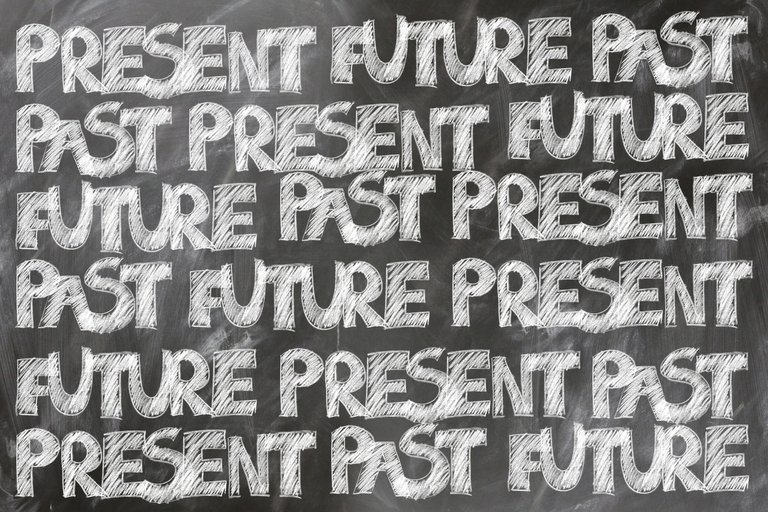
I spend a lot of time replaying conversations and past events, trying to come up with ways I could’ve said or done something better. Usually, I end up thinking I should’ve said a little less than I did or toned down my reactions. I’ve learned that, sometimes these responses are amplified by emotions, and usually, situations can be misinterpreted and blown out of proportion. We’re always reminded of the need to stand up for ourselves, but sometimes we’re so engrossed in the act, that we become the very thing we’re fighting against.
Make no mistake, silence is not a solution to any form of abuse.
Sometimes, taking a step back in heated situations can help you see beyond the haze of emotions that can cloud your judgement. As people, it is indeed normal to have these feelings, as they’re a very important aspect to being humans. Emotions are like indicators, clearly showing our state of mind, and sometimes, their absence is indeed an indication of trouble. We owe it to ourselves to keep a healthy mind, as studies (here’s one) have shown that mental and emotional states have effects on our body’s physical health.
Most of the arguments we get in daily can be easily avoided if we just take a few seconds to ask some important questions.
What is the purpose of this conversation?
This is the most important question, but also the most ignored. Sometimes, we don’t even know why we get into arguments. When faced with confrontational situations, our instincts kick in. Fight or flight is usually the response. Very few of us learn to control our impulses.
We all want to avoid pointless confrontations, but do nothing consciously to. One of the problems we face is how society celebrates “victors”. We still live with a gladiator mindset, the only difference being that words are now the weapon of choice. In an arena of extreme sarcasm, clap-backs and witty one-line comebacks, a fast mind truly is king.
What we fail to realize is that for the brief thrill of being applauded by a largely online audience, who themselves silently seek validation, we lose the opportunity to actually connect. It’s all fun and games until you realize that you’re only popular because you have a corrosive repertoire of words. Your “fans” will turn on you the moment your latest jabs is directed at one of their vices.
What is the point if you engage in conversations and end up not learning, or teaching something?
We lie to ourselves sometimes, and it’s not a surprise that terms such as “fake deep” aptly describe a lot of the posts we come across daily. In a bid to sound intellectual and enlightened, we’ve traded opportunities to learn and have meaningful conversations for a mirage of shallow thoughts mainly expressed in expletives.Am I trying to pass across a message, or do I just want to win?
We live in a world where everything and everybody is in some competition with the other, even when we tell ourselves that we’re not. We pick sides and boldly end thoughts with hashtags, pledging solidary to causes that we have little or no understanding of, with people who are as ignorant as we are, or sometimes even worse.
Usually there’s always a conflicting side to every movement these days. While some of us genuinely connect with the ideas that lay the foundation for these movements, more often than we tend to admit, we alienate people with different points of view, labelling them the enemy, in causes that most likely affect us all.
It’s really a shame that for a generation with so much outlets, when we speak, there either is no message, or it is buried in hate, insults and emotion, that it’s almost impossible to really understand.
I reckon if we actually take time to spell out our stance in clear language, void of the rage or hatred for the ones we think are against our “progress”, we’d make so much progress, and ultimately realize that we’re all on the same side. If we listen, to really understand, not to counter, or poke holes in arguments, the path to a resolution will become clearer.
Most of the time, we just focus on sparring, forgetting the problems that drew the lines in the first place, or the unnecessary need to pick sides and seek to vanquish our “foes” on the other side.
We lose time, and opportunities for solutions without even realizing.Am I willing to accept if I’m wrong?
As much as we’d like to deny, we all have an ego that sometimes decides for us in issues where simply admitting our faults would have been enough. These days, everybody is an expert on something, and the beginner is usually laughed at. We have forgotten over time, the importance of learning, and the part that temporal ignorance plays in gaining knowledge. Ignorance is only a problem if we refuse to learn.
Refusing to accept when our points of view are wrong, or when our interpretation of other views are, usually drags on in counter arguments and restating previous positions. Sometimes, we descend to personal attacks as a deflection from initial conversations, in bid to “score wins”.
Accepting that we cannot know everything about anything, but can leverage on the knowledge of others to learn and proffer solutions presents a solution to circumventing the usual flow of ego wrestles and drawn out expletive riddled, pendulum-like conversations.
Finally, as everything is becoming fashionable, we must not forget that it costs nothing to be courteous and respectful. A response without insults or sprinklings of disdain is not in any way a reflection of your lack of expression or cowardice. If anything, it displays a mind in total control of otherwise wild feelings and emotions.